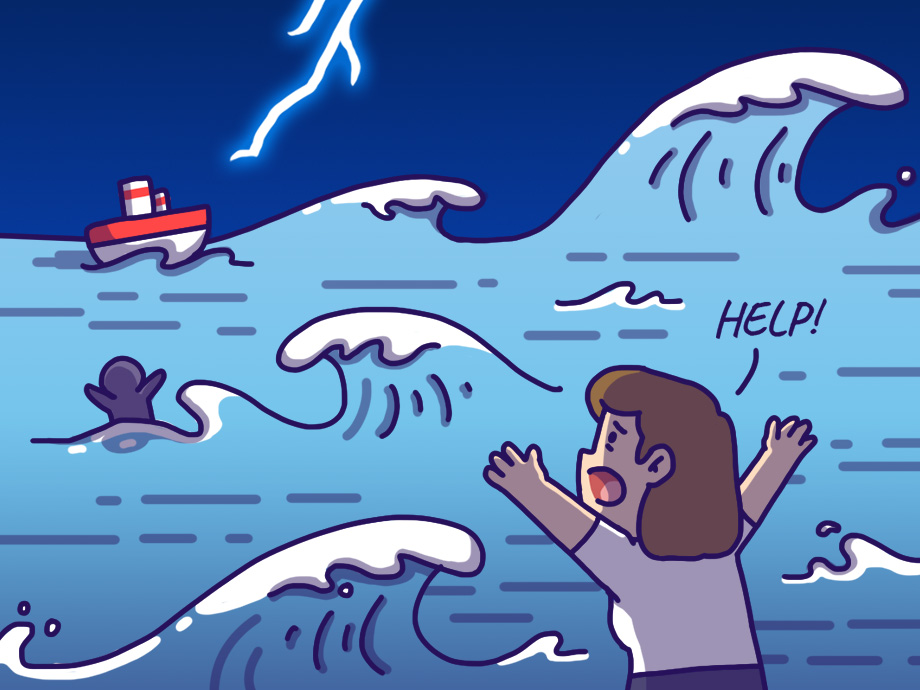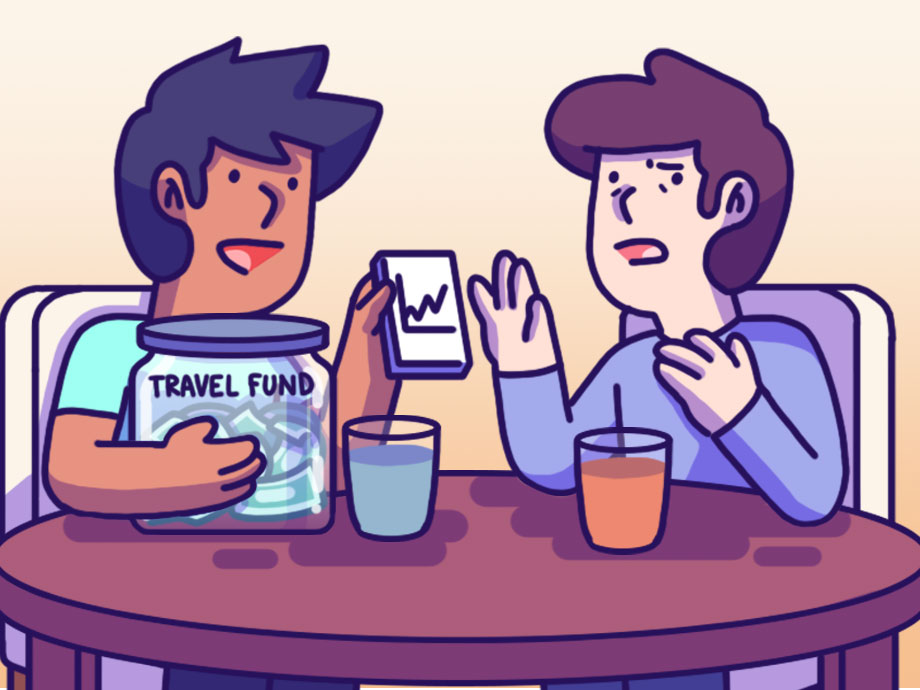Financial Planning | Personal Finance | Article
I Asked an Insurance Agent out for Drinks. Here’s What I Found Out.
by Annie | 2 Jan 2019 | 11 mins read

Insurance agents have a bad reputation, and for good reason. Their pushy and aggressive sales tactics can often come across indiscriminate and unscrupulous. It doesn’t matter if you’re considered family or a close friend. How many times have you accepted an invitation to “catch up”, only to find yourself trying to escape a pitch about investment-linked plans (ILPs)?

If you have friends who are insurance agents, it’s likely that you keep them at arm’s length. But have you ever sat down with them to genuinely ask about their profession? Turning the tables around, I invited a financial consultant friend for drinks to find out what her occupation really entails.
And if the meeting somehow became a sales pitch, at least there would be alcohol to dull the pain.
A: Let’s start with an easy question. What do you do?
FC: I’m a financial consultant. Basically, I do insurance sales and servicing.
A: Why did you choose this job?
FC: It was because of my parents who are financial consultants themselves. I would not have gone into the business willingly on my own.
A: So your parents said: “Hey, why don’t you join the family business?”
FC: Yes. When agents transfer clients, they pass them on to family members to keep the commissions in the family. This is very common in the industry.
A: Would you say your experience as a second generation consultant differs from someone who is new to the industry?
FC: Yes, because I had mentors to guide me. And if your parents pass you some of their existing clients, you start with a ready pool of clientele. It’s a lot easier than starting from scratch and having no one help you.
A: What is your relationship like with existing clients? Do you ask for regular catch-ups or wait for them to make a request?
FC: Personally, I will wait for them to approach me. I don’t go to them and say “Hey, let’s catch up!” because it’s very fake! I don’t want them to think, “What are you trying to sell me AGAIN?”
A: But other FCs do, right?
FC: Yes. My father advised me that to get recurring business you should request for regular meetups. Like, “Hey I’m in the area, do you want to get some coffee?” BUT I DON’T WANT TO DO IT! Younger people don’t fall for that.
A: Yep. What did your friends think when you told them you were going into insurance?
FC: At the time, I was working at another company and I wasn’t earning much, so many of my friends were encouraging. Some even felt that my disposition would serve me well in this line. I guess I didn’t really meet anyone who was very against it. Then again, I don’t really share my occupation, because there’s that negative association when you say you’re a financial consultant.
A: Yes there is. There seems to be a weird culture that comes with being an insurance agent. I often see agents who brag about their successes and tag stuff like ‘#workhardplayhard’ on their social posts.
FC: I learned from a friend who works in [popular insurance company] that agents start by doing a lot of road shows. After they achieve some success, they are encouraged to constantly show that they’re doing very well so customers feel that they’re in good hands. That’s what I heard that they HAVE to do anyway.
A: But why would I trust my money with people like that?
FC: Some people think that if your agent is successful, it means they are a good agent. I don’t feel that way. Like, why are you showing off? I’ve heard about bad experiences where people had agents pressure them to buy a policy so that they could go on an incentive trip. That is the WORST reason you can ever give to your clients. This sort of hard-selling is only detrimental to our industry.

A: From a different perspective, it’s tough for new agents with mentors who tell them that this is the ‘right’ way to sell insurance. They don’t know any better.
FC: Hard-selling still works and many people are successful because of it. Some target old people who don’t know any better. In my opinion, if you’re genuinely trying to help a person’s situation, that’s fine, but don’t recommend policies they don’t need.
A: What can you tell me about those people on the street who approach members of the public to complete surveys?
FC: It’s a tactic to get people interested. Insurance companies hire young people to be ‘pullers’ to get people to go to their booth. It’s ultimately a numbers game. If you approach fifty or sixty people and get one or two clients, that’s considered a decent success rate. That is why they have to be very pushy.
A: Let’s talk about commission. What’s a popular thing to sell?
FC: Hospitalisation policies. Although they generate a very small amount of revenue, it’s recurring revenue due to the annual premiums. It often constitutes the base pay for experienced agents.
A: So what products earn the most commission?
FC: Investment-linked plans. A lot of agents will push for that.
A: Are they hard to sell?
FC: Yes. Because you need to know what funds you’re selling and the risks involved. If the market should drop, you will be having many difficult conversations with clients. And of course there is no guaranteed return. It’s a high risk, high reward product. I prefer traditional plans because they are generally safer, despite the lower commissions.
A: What are the commissions like?
FC: For a life insurance policy, the commission can be around 40 percent. For example, if your client purchases a policy with a $2,400 annual premium, you will receive about $1,000. But it differs from policy to policy. Hospitalisation policies are around 13 percent, while investment-linked policies are around 50 percent. Single premium policies are about 1 to 2 percent. If insurance agents do very well, they can make a lot of money.
A: Do investment-linked plans actually benefit clients?
FC: I have heard from people that investment-linked plans can make you a lot of money. For these plans, it’s always better to hold them long-term, because you can weather the ups and downs of the market. But like I said, there is no guarantee. If the market drops, your client will scold you. I don’t think it’s worth it. Angry customers are not fun at all.
A: Have you had any angry customers?
FC: I had one. She wanted to buy an Eldershield supplement for added coverage, but she was excluded because of the high blood pressure medication she was taking! “It’s a very minor thing, why are your underwriters so strict?” she argued. She still went ahead with the exclusion anyway, because I think she went to other insurers and they said the same thing. It’s usually about exclusions that people get upset over.
A: Was that hard for you to deal with?
FC: Yes, because I felt very stressed! I kept thinking about it, but at the end of the day it’s out of my control.
A: Would you say that you like what you do?
FC: (pause) No. This job comes with a lot of responsibilities. Everything we sell directly impacts our clients’ finances and their lives. It’s a very heavy burden to bear. I worry often. Also, it’s a sales job.
A: How much of your job is actually sales?
FC: Around 80 percent? Servicing, like claims and paperwork takes up only 20 percent.
A: Do financial consultants ever think, “I don’t want this job because I might end up losing friends?”
FC: Some believe that financial stability and wealth is worth more than friendship. Many people who join the industry aspire to be financially independent and make it their life goal. Also note that when agents undergo training, they are often told that if your friends shun you, they’re not true friends.

In training, we are made to call our friends. There was a particular lesson where we had to call our friends and the calls are monitored. Our trainers listened in, and gave us tips on how to improve. But really, almost all conversations began with: “Hi, haven’t talked to you in some time! Don’t know whether you’ve heard I joined so-and-so company…?”
A: That makes so much sense now.
FC: That’s why people who stay in this business believe that true friends will support them no matter what. In training, we are made to call our friends. There was a particular lesson where we had to call our friends and the calls are monitored. Our trainers listened in, and gave us tips on how to improve. But really, almost all conversations began with: “Hi, haven’t talked to you in some time! Don’t know whether you’ve heard I joined so-and-so company…?”
A: I think I’ve experienced this.
FC: I don’t know why the trainers think this approach sounds genuine. I felt it was so fake. I actually messaged my friends beforehand and said, “Hey, I’m going to call you, just go along with it”. Because I knew my friends would otherwise go, “What the f*** are you talking about?”
A: Can I ask – why is insurance so damn complicated?!
FC: I believe it’s because FCs and insurance companies need to protect themselves, hence the many terms and conditions. Insurance companies also need to differentiate themselves with gimmicks that can often end up confusing.
A: But it’s such a terrible way to sell.
FC: If you think about it, it makes insurance agents indispensable! Because you need them to explain the details of the plan. Policies are essentially contracts, and they often contain terms and jargon that the average person may not be familiar with. Trust me, when I got into it I was confused too. That’s why we have to take exams.
A: I’m curious about health declarations in insurance. Can you get away with not declaring that you drink or smoke?
FC: Usually, when there’s a declaration asking if you drink, I almost always indicate ‘no’. [ironically while swilling a gin tonic]. The medical questionnaire only applies if you drink or smoke excessively. If you drink every day, you should probably declare it.
A: In my opinion, managing insurance is a subject that should be taught in school. Insurance is essential, but few understand how to navigate all the options.
FC: But if you teach it in school, agents won’t have a job. If you knew enough, you could just buy it directly online. If that happened, many older agents would be out of a job.
A: It’s quite a broken industry.
FC: In a way. It definitely attracts a certain type of personality. The same people you often find in real estate and MLM.
A: Okay, final question. What advice can you give us on buying insurance?
FC: Never buy policies on the spot, especially at roadshows. You wouldn’t know offhand every policy you have, and what if you end up with something you don’t really need? Don’t be impulsive, or you might end up regretting it. Also, meet the agent a few times, so you get a sense of who they are. You should feel comfortable before you sign on the dotted line. That rule applies even if it’s your parents’ agent or a friend. If you’re not comfortable, don’t commit, because you’re the one who will have to deal with the person in the long run.

Disclaimer: This is one insurance agent’s account told under the influence of alcohol. Please don’t take this as the biblical truth.
















